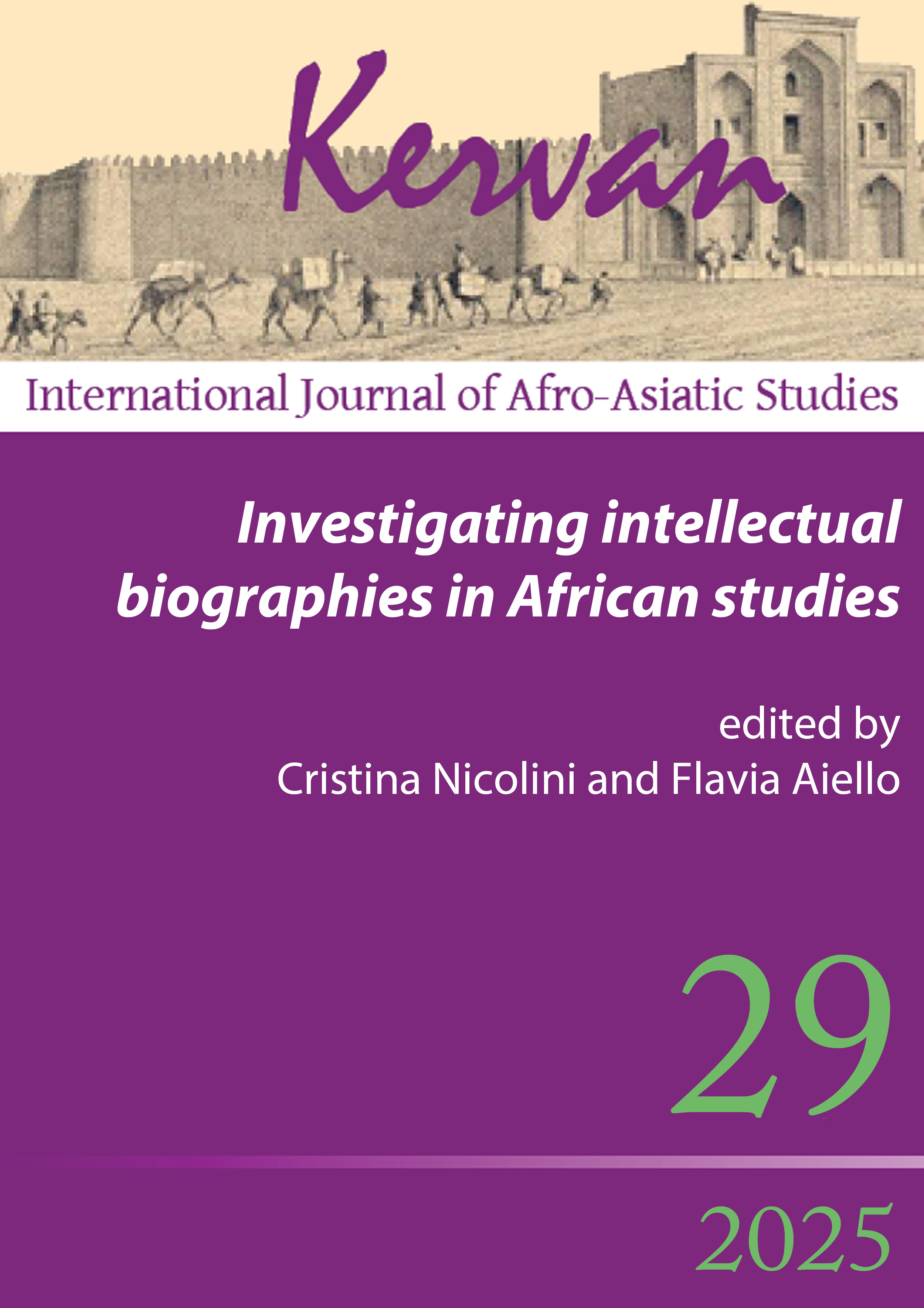Outline of Shaaban Robert’s idealism
DOI:
https://doi.org/10.13135/1825-263X/11977Abstract
The influence and dominance of Anglo-American philosophy since World War II has left the false impression that the philosophical ideas of thinkers can only be found in either the journals dedicated to the different aspects and branches of the discipline, or in the compendiums and treatises of their authors traditionally regarded to be philosophical within those traditions. I said “false,” because it is hardly the case, yet the cultural bias and arrogance that came with colonial power left many people across the colonized world, especially in Africa, believing that philosophy had homes only in European languages and not in any one of their own. To be sure, style is one thing, and the thought content of a thinker’s endeavors is a whole different matter. The Western colonial biases in defining what ought to be regarded as philosophy has led to the neglect or underrepresentation of the materials and content of philosophical education in formerly colonized countries and cultures. But this ought not be the norm, as experiential issues thinkers deal with, as well as the styles they present these concerns in, vary from tradition to tradition, and none of them is more valid than another. In what follows I sketch how Shaaban Robert’s works can be read and reflected on, despite his unique and eclectic style, as works in social, moral, and even political philosophy. As he says it himself, a good text must be judged by the estimation of the audiences for whom it is written, and this can be the case only if the text appeals to, and stimulates their intellectual and emotional arousal, both of which are functions of the vernacular. Are English, French, German, Russian, Chinese, and any other language out there in the rest of the world, not just vernaculars to their respective native speakers after all? Similarly, and naturally for that matter, KiSwahili is the native language of all those people who consider it their native language through which they experience and think about the world.
Downloads
Downloads
Published
Issue
Section
License
Gli autori che pubblicano su Kervan accettano le seguenti condizioni:
- Gli autori mantengono i diritti sulla loro opera e cedono alla rivista il diritto di prima pubblicazione dell'opera, contemporaneamente licenziata sotto una Licenza Creative Commons - Attribuzione che permette ad altri di condividere l'opera indicando la paternità intellettuale e la prima pubblicazione su questa rivista.
- Gli autori possono aderire ad altri accordi di licenza non esclusiva per la distribuzione della versione dell'opera pubblicata (es. depositarla in un archivio istituzionale o pubblicarla in una monografia), a patto di indicare che la prima pubblicazione è avvenuta su questa rivista.


 The articles that have appeared on Kervan since 2016 are rated as Class A in the system of National Scientific Qualification (ASN, disciplines 10/N1 and 10/N3).
The articles that have appeared on Kervan since 2016 are rated as Class A in the system of National Scientific Qualification (ASN, disciplines 10/N1 and 10/N3). The journal has been approved for inclusion in DOAJ. The DOAJ listing of the journal is available at
The journal has been approved for inclusion in DOAJ. The DOAJ listing of the journal is available at  The journal has been approved for inclusion in ERIH PLUS. The ERIH PLUS listing of the journal is available at
The journal has been approved for inclusion in ERIH PLUS. The ERIH PLUS listing of the journal is available at  Kervan was just accepted for indexing in SCOPUS. This important milestone ensures that articles published in Kervan are easily found when searching for library, archives and Information science and it enables Kervan authors to keep track of how often their article has been cited by others.
Kervan was just accepted for indexing in SCOPUS. This important milestone ensures that articles published in Kervan are easily found when searching for library, archives and Information science and it enables Kervan authors to keep track of how often their article has been cited by others.
